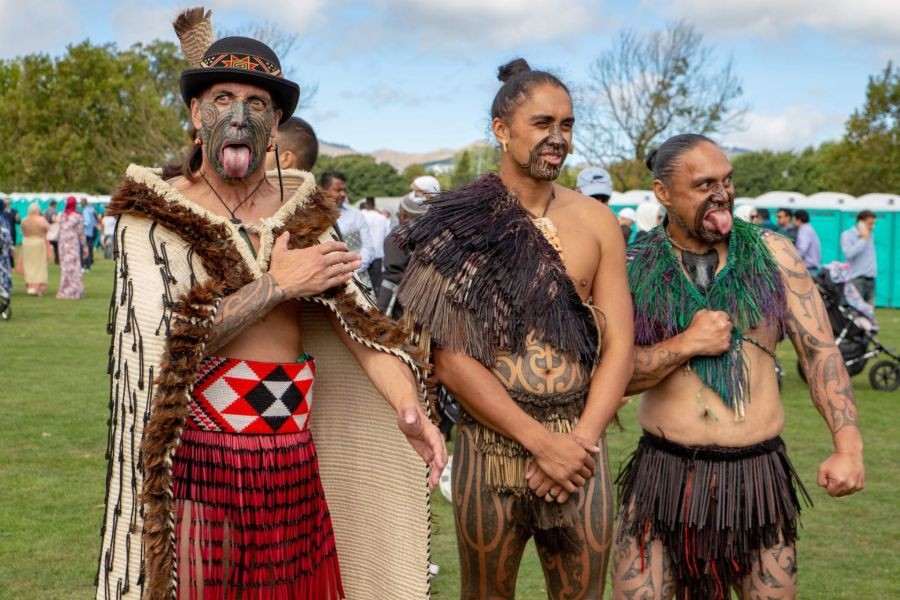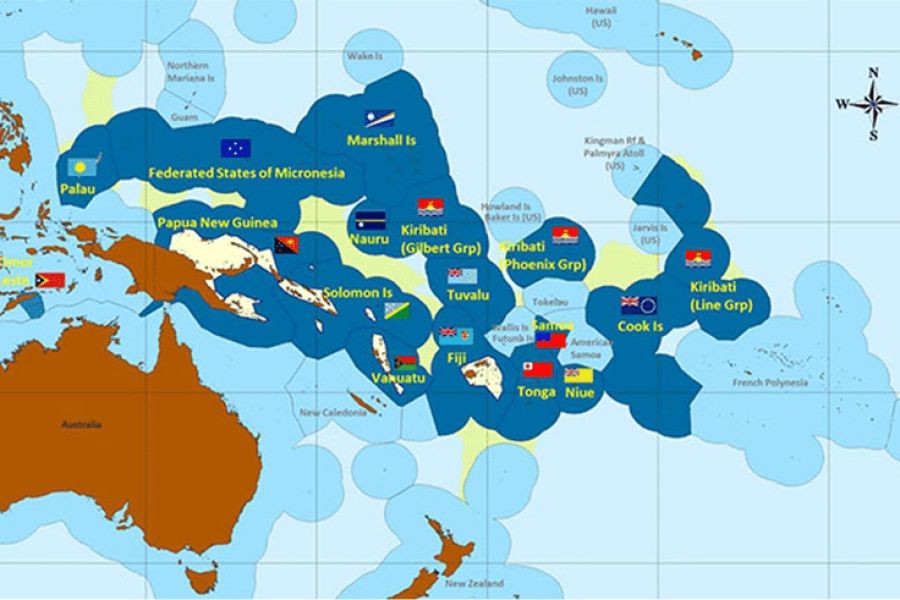In recent years, the conversation around New Zealand's national identity has increasingly focused on the role of Māori culture. With a rich history and a vibrant cultural heritage, Māori traditions offer a unique perspective that could significantly shape New Zealand’s modern identity. As international interest in indigenous cultures grows, New Zealand faces the opportunity to redefine its identity on a foundation of Māori culture. This article explores how this cultural integration could unfold, examining its potential impacts on New Zealand's economy, society, and global standing.
The Importance of Māori Culture in New Zealand
Māori culture is integral to New Zealand's identity, offering a unique cultural touchstone that sets the country apart on the global stage. The Māori language, customs, and traditions are not only preserved but celebrated, contributing to the social fabric of the nation. The New Zealand government recognizes the importance of this cultural heritage through various initiatives aimed at preserving and promoting Māori culture. For instance, the Ministry of Business, Innovation, and Employment (MBIE) has supported the growth of Māori tourism, which has become a vital part of the country's economy.
Economic Impact and Opportunities
Māori culture significantly contributes to New Zealand’s economy, particularly through tourism. According to Stats NZ, the Māori tourism sector has grown to contribute over NZD 1.3 billion annually to the economy. This growth is not just a result of global interest in indigenous cultures but also due to concerted efforts by Māori entrepreneurs and the New Zealand government to create authentic experiences that resonate with both domestic and international visitors.
The integration of Māori culture into the broader New Zealand economy presents numerous opportunities. Māori businesses are increasingly becoming key players in various industries, from agriculture to digital technology. The Reserve Bank of New Zealand reports that Māori enterprises contribute significantly to the GDP, with sectors like agribusiness and fisheries being particularly noteworthy. These industries benefit from Māori values such as kaitiakitanga (guardianship), which promote sustainable and ethical business practices.
Case Study: Waka Tours – Bridging Culture and Commerce
Waka Tours, a Māori-owned tourism company, offers a compelling example of how Māori culture can be integrated into modern New Zealand identity while driving economic success.
Problem: Waka Tours faced the challenge of standing out in a saturated tourism market. The company needed to offer something unique to attract both domestic and international tourists.
Action: Focusing on authentic Māori cultural experiences, Waka Tours designed packages that included traditional waka (canoe) journeys, storytelling, and interactions with local Māori communities. They partnered with local iwi (tribes) to ensure cultural authenticity and sustainability.
Result: Within two years, Waka Tours reported a 70% increase in bookings, with international tourists accounting for 60% of their clientele. The initiative also created over 50 jobs in the local community and contributed significantly to the local economy.
Takeaway: This case study highlights the potential for Māori culture to enhance New Zealand’s tourism sector. By offering authentic experiences, businesses can attract a global audience while preserving cultural heritage.
Strengthening Social Cohesion Through Cultural Integration
Integrating Māori culture into New Zealand's identity is not just an economic opportunity; it is also a social imperative. Māori values such as whanaungatanga (community) and manaakitanga (hospitality) promote social cohesion and inclusivity. As the country becomes more culturally diverse, these values can help bridge gaps and foster understanding among different communities.
Educational initiatives play a crucial role in this integration. The New Zealand education system has increasingly incorporated Māori language and culture into the curriculum. This not only preserves the language but also instills a sense of pride and identity among Māori youth. Furthermore, it educates non-Māori students about the significance of Māori culture, promoting mutual respect and understanding.
Challenges and Controversies
Despite the potential benefits, integrating Māori culture into New Zealand's identity is not without challenges. There are concerns about cultural appropriation, where elements of Māori culture are used superficially without understanding or respect for their significance. Additionally, there is the risk of commodifying Māori culture, where it is reduced to a marketing tool rather than being valued for its intrinsic cultural significance.
Addressing these challenges requires a balanced approach. It is essential to involve Māori communities in decision-making processes, ensuring that their voices are heard and respected. Policies that protect Māori intellectual property and cultural heritage are also crucial to prevent exploitation.
Myth vs. Reality: Common Misconceptions
Several misconceptions about Māori culture and its role in New Zealand’s identity persist. Here are some common myths and the realities that debunk them:
Myth: "Māori culture is only relevant to Māori people."
Reality: Māori culture is an integral part of New Zealand’s national identity. Its values, language, and traditions enrich the lives of all New Zealanders and are celebrated nationally through events like Waitangi Day.
Myth: "Māori cultural integration is only about tourism."
Reality: While tourism is a significant aspect, Māori culture influences various sectors, including education, business, and governance. Māori values guide ethical practices and community well-being across the country.
Myth: "Māori culture is static and unchanging."
Reality: Māori culture is dynamic, evolving, and adapting to modern contexts while maintaining its core values. This adaptability makes it a robust foundation for building New Zealand’s modern identity.
Pros and Cons of Building on a Māori Cultural Foundation
Integrating Māori culture into New Zealand’s modern identity presents both opportunities and challenges. Here’s a balanced view:
Pros:
- Unique Identity: Māori culture provides New Zealand with a distinct identity that sets it apart globally.
- Economic Growth: Māori cultural integration can drive tourism and open new markets, boosting the economy.
- Social Cohesion: Promotes inclusivity and understanding among diverse communities.
- Sustainability: Māori values promote sustainable practices, benefiting the environment and future generations.
Cons:
- Cultural Appropriation: Risks of using Māori culture superficially or for commercial gain.
- Resistance to Change: Some may resist changes to traditional national identity.
- Resource Intensive: Effective integration requires investment in education and cultural initiatives.
Future Trends and Predictions
As New Zealand moves forward, the integration of Māori culture into its national identity is likely to accelerate. Here are some predictions:
- By 2030, Māori cultural tourism is expected to be a leading sector, contributing over NZD 2 billion annually to the economy.
- Educational curricula will increasingly incorporate Māori perspectives, fostering a generation that values diversity and inclusivity.
- Māori businesses will lead in sustainable practices, influencing policies and setting standards for ethical business in New Zealand.
Conclusion
Building New Zealand’s modern identity on a foundation of Māori culture offers a pathway to economic prosperity, social cohesion, and global distinction. By embracing Māori values and traditions, New Zealand can craft an identity that is inclusive, sustainable, and uniquely its own. The journey requires collaboration, respect, and a commitment to preserving the cultural heritage that makes New Zealand exceptional.
Ready to explore more about how Māori culture is influencing New Zealand? Join our newsletter for exclusive insights and updates on cultural developments and tourism trends in New Zealand!
People Also Ask (FAQ)
- How does Māori culture impact businesses in New Zealand? Māori culture enhances businesses by promoting ethical practices and sustainability, leading to higher customer trust and engagement.
- What are the biggest misconceptions about Māori culture? A common myth is that Māori culture is only relevant for tourism. In reality, it influences various sectors, including education and governance.
- How can businesses integrate Māori culture sustainably? Businesses should engage with Māori communities, respect cultural heritage, and ensure authentic representation in their practices.
- What upcoming changes could affect Māori cultural integration? Policy updates promoting Māori language and cultural education will accelerate integration across sectors by 2026.
- Who benefits the most from Māori cultural integration? Māori cultural integration benefits businesses, educational institutions, and communities, enhancing social cohesion and economic growth.
Related Search Queries
- Māori culture and New Zealand identity
- Impact of Māori tourism on New Zealand economy
- Sustainability practices in Māori businesses
- Māori cultural integration in education
- Challenges in preserving Māori culture
- Māori values in modern business
- Cultural appropriation in New Zealand tourism
- Future of Māori cultural tourism
- Māori influence on New Zealand policies
- Social cohesion through Māori integration






























billgqc017005
9 days ago